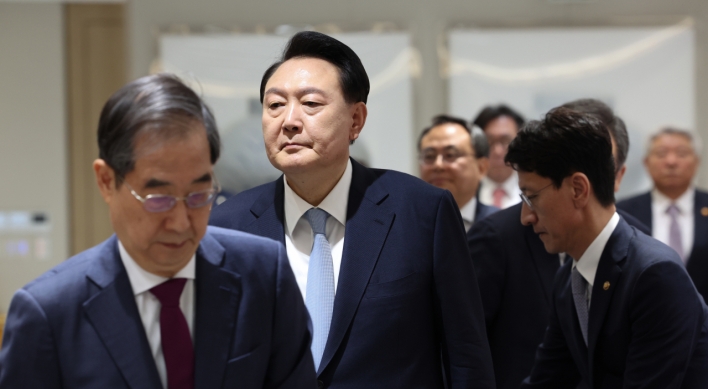[Noah Smith] Debt isn’t as scary as government bungling
By BloombergPublished : May 21, 2020 - 05:30

All of these efforts are necessary. But add them all up, and they’re going to leave the US federal government with a lot of debt.
Republicans have so far been willing to support big spending, but rumblings of worry are now starting. Experts are not quite sure what to think of the huge rise in debt, but some are beginning to pay attention.
So what’s the problem with debt? There’s no immediate worry that the government will be forced into a default. Long-term interest rates are very low, in both real and nominal terms.
That means that the US government is now effectively getting paid to borrow at long maturities. By doing a lot of deficit spending now, it can lock in those low interest rates for decades.
The problem is what happens if there’s a need for future deficit spending. If private investors decide in 2022 or 2030 that the US debt is too large and stop buying Treasuries, the government will have a choice. It can let interest rates rise, meaning that future borrowing will incur higher interest costs. Or it can use the Federal Reserve to hold down long-term rates by buying Treasuries.
The latter course of action would seem to be the more sensible one because rising interest rates would consume increasing amounts of the government’s budget, and could eventually force a default. But Fed actions that held down long-term rates in perpetuity -- which effectively becomes monetary financing of fiscal spending -- would incur the danger of hyperinflation.
Talking about hyperinflation might seem crazy at a time when inflation is plunging. But it’s worth thinking about what hyperinflation would entail. It would result in a loss of confidence in the US as a country; investors would have to believe that US policy and the US economic system are in a long-term state of decline, and decide to abandon dollar-denominated assets. It would lead to the largest and most destructive episode of capital flight that the world has ever seen. Assuming China continued to resist the free movement of capital, most of the money would probably go to Europe and developed regions of East Asia. The global economic system would be devastated and utterly rearranged.
Just a few months ago, a collapse of confidence in the US would have been unthinkable. It’s still highly unlikely. But the ineptitude with which the US has handled the pandemic is probably giving rise to the first glimmers of doubt.
Among developed nations, the US has been uniquely incapable of suppressing COVID-19. The number of cases per capita is higher than that of any major developed nation except Spain (and that gap is closing). The rate of decline of cases and deaths from the peak is slower than any other rich country, and considerably slower than that of Europe as a whole.
A number of highly visible policy mistakes and industrial deficiencies have contributed to this mess. The US failed to ramp up testing quickly, thanks to lack of federal leadership, regulatory blunders and fragmentation of supply chains. US stay-at-home orders, implemented haphazardly at the state level, were less effective in halting the spread of the virus than in most other developed countries. Now, several states are reopening prematurely, ignoring the guidelines set forth by the federal government. The president is egging them on.
Meanwhile, the Michigan legislature has had to cancel a legislative session out of fear of armed protesters, suggesting the beginning of a breakdown in law and order. There are even questions about whether the Donald Trump administration may try to delay the fall presidential election or cast doubt on the legitimacy of the result. Meanwhile, both Democrats and Republicans seem convinced that the leaders of the opposite party are criminals. All of these developments could indicate that the US is less politically stable than many assume.
If investors begin to have doubts about the US’s long-term efficacy and stability as a nation, it could make the nation’s growing mountain of debt harder to sustain in the future, raising the risk of a catastrophic capital outflow. But the way to allay the danger is not to engage in fiscal austerity; that will merely make the depression worse, and contribute to greater unrest and instability. Instead, the US needs to improve its public health system and its industrial supply chains, while backing off of the politics of brinksmanship. Reassuring the world that the US will remain a developed nation will make debt less of a problem -- not the other way around.
Noah Smith
Noah Smith is a Bloomberg Opinion columnist. He was an assistant professor of finance at Stony Brook University. -- Ed.
(Bloomberg)









![[KH Explains] How should Korea adjust its trade defenses against Chinese EVs?](http://res.heraldm.com/phpwas/restmb_idxmake.php?idx=644&simg=/content/image/2024/04/15/20240415050562_0.jpg&u=20240415144419)








